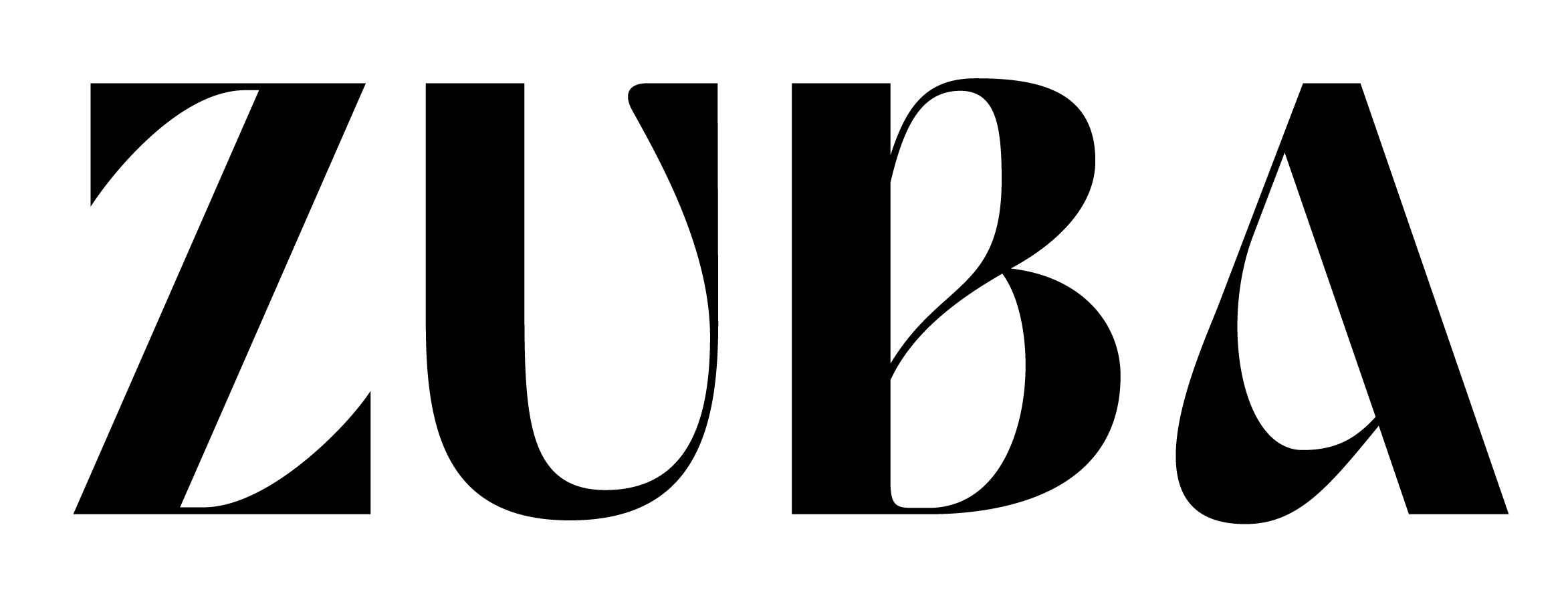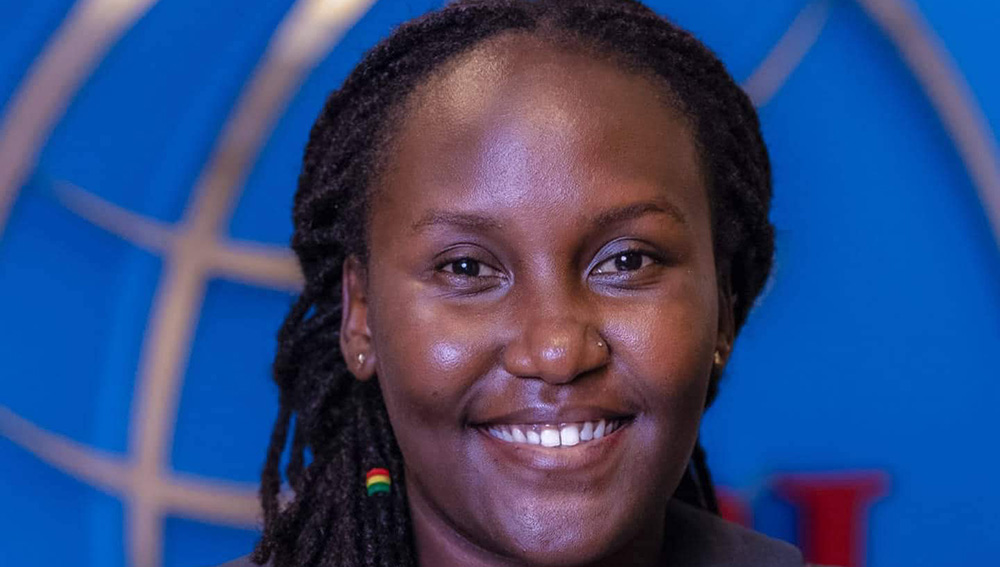Winnie Akidi Adile is an award-winning Ugandan activist and youth leader championing advocacy for youth sexual reproductive health and rights (SRHR) as well as digital communications systems for activism.
She is the founder of the WEtalk Series Uganda, an organization that uses digital media, stories and advocacy documentaries to advance and amplify the voices of young people and leaders in advocating for sexual reproductive health, and inclusive participation of young people in civic leadership and engagements in the country. The organization aims at creating and strengthening linkages among young people globally, to steer conversations on ideologies that influence change in communities
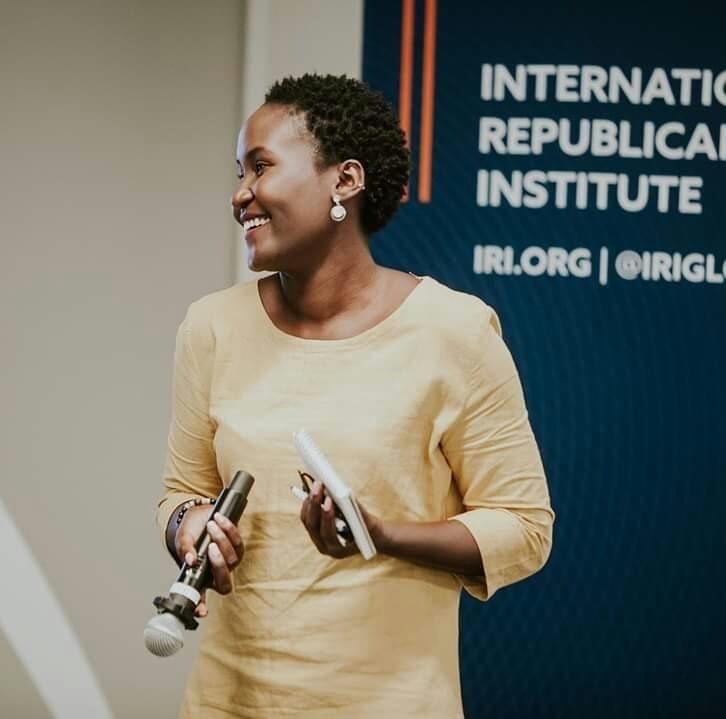
As a youth leader, Winnie has served as the Youth Advisory Group (YAG) on Cross-Sectoral Programs for the Consortium for Elections and Political Process Strengthening (CEPPS) and was early this year elected to the 2022-2023 Generation Democracy Global Advisory Board where she currently serves as the (GMAB) Africa Regional Leader for Africa. For her exceptional work, Winnie has been the recipient of several recognitions including the 2020 Top 40 Under 40 Africa youth leadership award.
GLIM: What inspired you to start the WEtalk Series Uganda?
W.A.A: I was inspired by my personal experience. Growing up as a girl and the 5th born in the family, you are not often given enough chance to be heard. When I joined university, I had to work extra jobs to earn money to pay my tuition. I would work from 8:00 am to 4:30 pm and then attend lectures at 5:30 pm till around 10:30pm in the night and have to walk back home. which exposed me to a lot of dangers. At the university, I realized other girls were facing challenges too. I once found two different girls crying because they were sexually assaulted and one had survived being raped. So this got me thinking, ‘what is going on and why is this only happening to the girls?’ I spoke to some of my female colleagues in the evening programe and suggested we start having these conversations because I realized there must be girls in other institutions going through the same issues. They accepted and we started with topics around defilement, rape, and sexual harassment, academics, among others.
GLIM: What are the current projects you are working on?
W.A.A: We are currently designing a project that involves a peer-to-peer learning approach to breaking myths surrounding sexual reproductive health, specifically on menstrual health management, especially for the young girls in rural communities in northern Uganda. We are looking at how best we can go on the grounds and empower them to remain in schools by teaching them how to make sanitary pads. The cheapest sanitary pads in the market currently cost between 3000 and 3500 Uganda shillings (1$) so the majority of these young girls drop out of school because they can’t afford sanitary pads.
GLIM: Why do you think it’s important for young people to provide solutions to the problems facing their communities and Africa at large?
W.A.A: I draw my learning from my previous position as the youth advisory group member for the Centre for Electoral Political Parties Strengthening, young people are seen as a problem, as the people misusing the internet and causing most of the violence around elections. They are seen as the people who don’t want to build their lives and want free things but I believe that we constitute the biggest percentage of the population in the world and also in Uganda in particular. I believe all the policies that are being enforced by our leaders, including school curriculum, issues around health, and security are targeting us the young people and we are the ones who are suffering from all these. That’s why it’s very much advisable to fully engage young people, to incorporate them in the processes of designing projects that address some of these issues because we derive solutions to these issues based on the evidence of the lives, the challenges, that we are living and experiencing in our day to day lives. So I believe it is very important for us to take on and be part of this, given the fact that it also helps us hold ourselves accountable and be part of the generation that is creating change and cease being the challenge that our governments, leaders and our parents see us today.
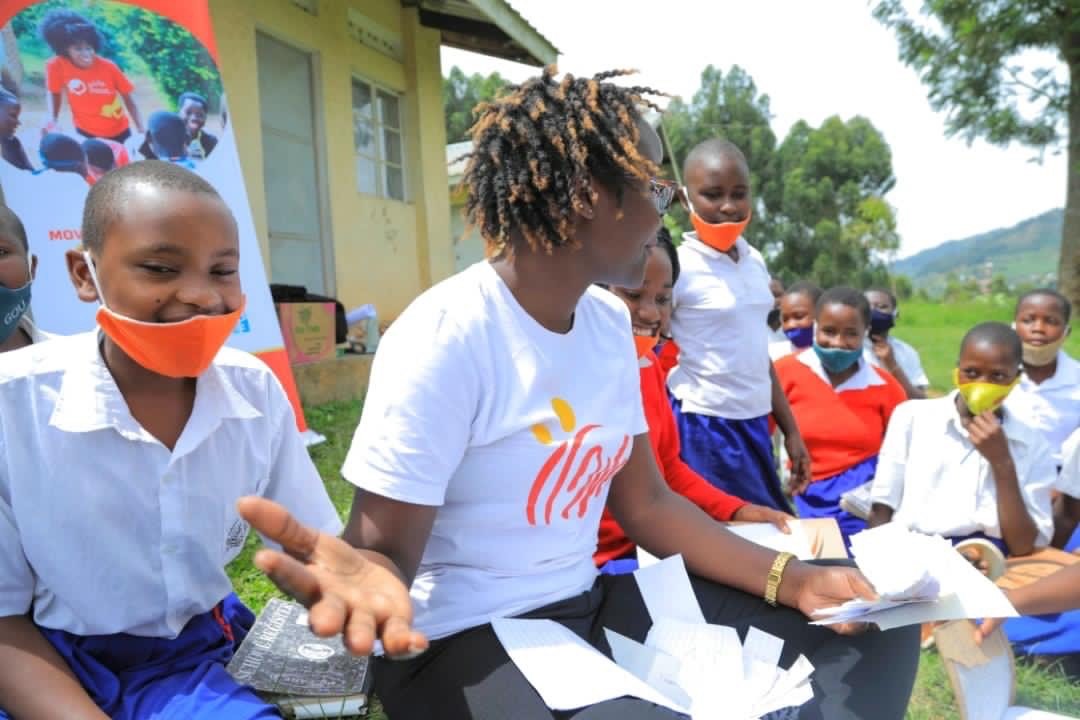
GLIM: What are some of the challenges you face as a young leader and advocate, and how do you overcome them?
W.A.A: There are so many myths surrounding teenage pregnancies, child marriages, and menstrual health which is a challenge because sometimes when we come up with project ideas that will best help certain communities, we encounter barriers from them because of their cultural context, faith and religion. There is a lot of miss information online, so however much you advise young people to make better choices and decisions, there’s always a lot of miss information that counteracts all the positivity that we are trying to achieve. As a leader, given the context that already we as young people have been seen as the biggest problem, you are sometimes not given that much authority and power to speak up because you are seen as someone who only wants to cause trouble. So most of these challenges are pushed on to us by the different policies enforced by the government, cultural and religious beliefs, and fact-checking on the internet because of miss information, since these days everyone is a citizen journalist. But as leaders, we will always try to be of service to the young people. So I believe we can always counteract some of these challenges by continuously speaking to young people.
GLIM: Who do you look up to?
W.A.A: I look up to my mother because she did everything to ensure I push through and has been my very big greatest support system. Professionally, I look up to my namesake Winnie Byanyima. Growing up, I was always referred to as Winnie Mandela and sometimes Winnie Byanyima. She has stood and fought for the advancement of the rights of young people through her work.
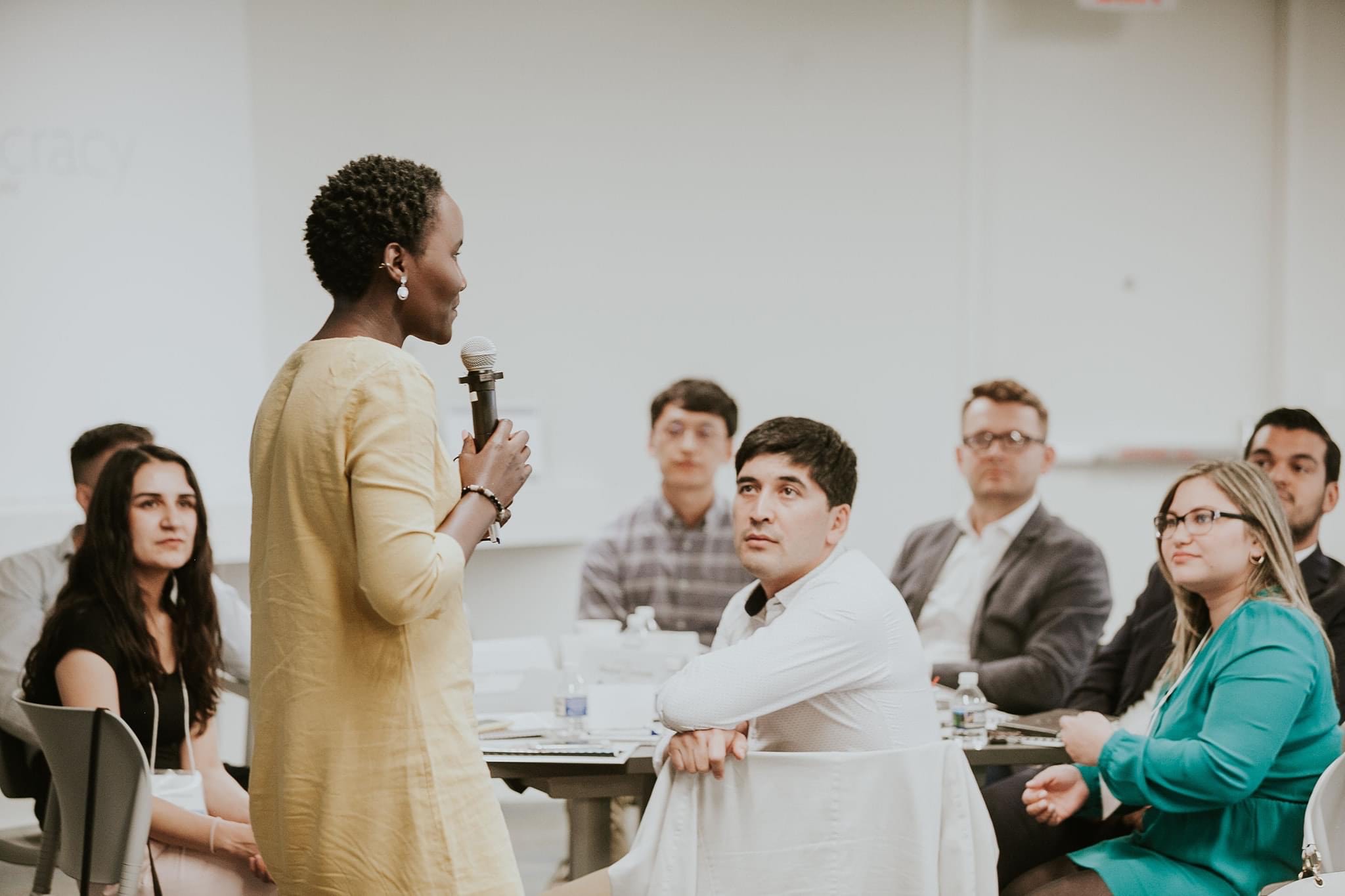
GLIM: What does the future hold for you and the WEtalk Series Uganda?
W.A.A: The future of the WE TALK series is directly linked to the quality and number of young people whose lives we have impacted and changed, the great platforms created and seeing the youths we have mentored mentor other young people as we maximize positive deliverables in our digital advocacy.
So the future is bright as long as we continue holding each other’s hand and trying to impact each other and build a whole generation of young people working together to create and impact other lives out there.
GLIM: What is your message to other young aspiring African leaders out there?
W.A.A: No one will open the door for you unless you decide to get up and start. You don’t need a lot of resources to start effectively impacting your communities. You can start by using the smallest resource you have which is your phone and your voice. Just be you, believe you and the rest will fall in line.
